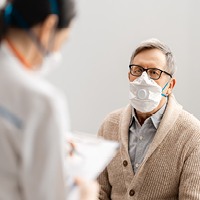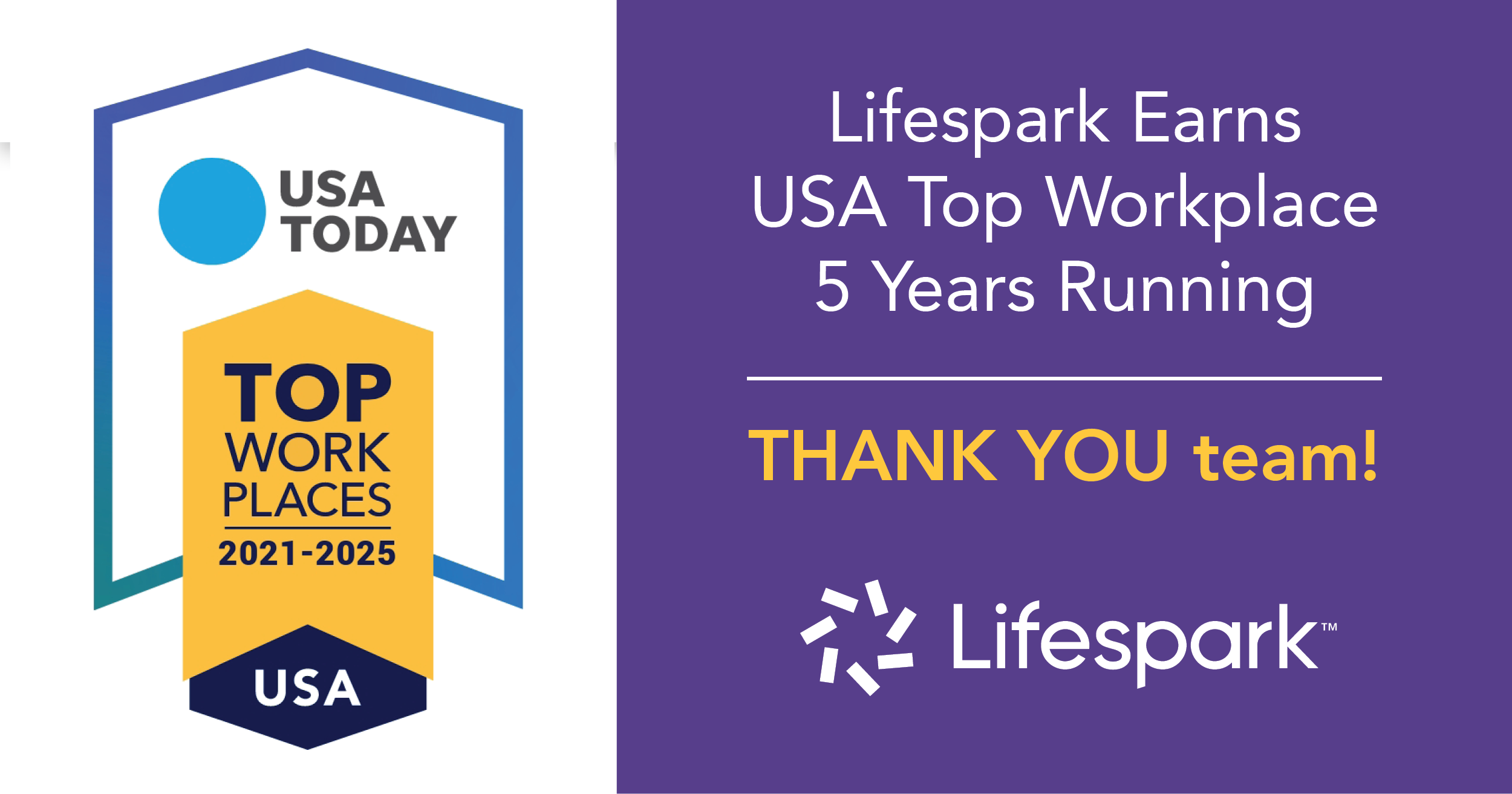
If given the choice – hospital or home, it’s no surprise most people would opt to recover at home. “No one takes care of you like a spouse or a close family member,” said Tina Belschner, LPN, Lifesprk Nurse Clinic Coordinator. “It’s not the same when you are surrounded by the things you love, in your own comfortable bed, listening to the sounds of your home as you rest and recover.”
That’s one of the biggest issues facing families during this pandemic. When a loved one gets admitted to the hospital whether COVID-19 or not, the client is alone in the hospital and their family members are home worrying about what is happening. “With this pandemic, we’ve lost the human experience that is so important to recovery and healing,” added Tina.
John Stenson and his wife, Diane, know this first-hand.
In May, at the height of COVID-19, John was headed to the emergency room at the direction of his cardiologist for elevated potassium putting his heart at risk along with acute renal failure. A year before, he was hospitalized with the same issue. “I was in the hospital for a week then so they could give me an IV,” said John. “My wife had to drive to the hospital every day to be with me. This time, my doctors were able to do the same thing, but I was able to receive hospital-level care at home with my wife by my side. That doesn’t’ happen when you’re in the hospital now.”
That’s because John was able to be admitted into a Hospital@Home program created in partnership between Lifesprk and North Memorial Health. The program was created in direct response to the current needs of Twin City seniors to proactively plan for potential hospital bed overflow due to COVID-19 and to address the health and safety of its people. “COVID-19 has given us the opportunity to reflect on how health and care are delivered in a world where this pandemic has largely played out in the home and community,” said Dr. Nick Schneeman, Lifesprk Chief Medical Officer and geriatrician leading the Hospital@Home program. “Despite the reluctance for many about visiting their health care providers, the reality remains that people still need hospital-level care to keep them well and reassurance that this continues to be a safe option.”
John admits he hadn’t heard of a hospital at home type program when ER doctors first told him this was now an available option for him. “When they explained it, I said, yes, go for it,” said John.
Learn More about Hospital@Home
“With Hospital@Home, typically, clients discharge home into the program the same day they visit the ER once they are stabilized,” explained Tina. Once home, the Lifesprk team meets with the client and their family to provide comprehensive medical care. Both the doctors and nurses on the team monitor the client’s health daily using Lifesprk’s telepak in-home monitoring kit which includes pulse oximetry, blood pressure cuff, scale, and video-call capabilities with in-home and remote support. Daily lab testing and selective imaging is also available. People can return to the hospital if higher level care is needed anytime throughout the Hospital@Home program.
“My favorite part though is something I have never seen in healthcare,” said Tina. “Dr. Nick starts each video dialogue asking clients unexpected things like: ‘so tell me your story,’ or ‘start when you were last well and bring me today,’ and my favorite, ‘you seem happy to be on the planet, tell me why.’ I find this approach so wonderful. He spends a lot of time learning and listening to the lives of his clients before he even gets to why they were initially admitted into the hospital. It makes for an incredibly different experience, one that’s very humanized.”
John would agree. “I felt I was the focus of all the team’s attention. It was such a sense of being cared for and taken care of. Colin Cowart our Lifesprk nurse came out twice a day for a while, he called me every morning and every afternoon. Dr. Nick visited with me online. There was just this sense that they were really concerned with my situation,” said John. “You go to the doctor now and they do a test, but you don’t hear from them for three, four, five days, sometimes a week. But this was immediate. The results came back, and Colin called me right away and adjusted my medication.”
It’s this person-centered attention to detail that has clients rating the program a 9.8 out of 10 and family members a raving 10 across the board. But it may also be something else – the initial question has people thinking differently about why they wake up each morning and what will motivate them to create changes in their health to stay well longer. “Dr. Schneeman’s opening questions are real motivators that set the tone right away making people feel comfortable. It’s so much more than changing meds,” said Tina. “It’s also comforting having family members part of the recovery and it’s a welcome change to the medically-focused care you’d get in the hospital. This is holistic and it’s just as much about wellbeing and creating the life experience people want as it is about health and recovery.”
A few weeks later when John visited his cardiologist things were going really well. “Dr. Nick sent all the stuff to my cardiologist, so I’m impressed with that part, too. He actually got on the phone and talked to my cardiologist during this 10-day period having a conference together -that was kind of neat. It was very well coordinated.”
“This program works well because it was built with thoughtful collaboration between two organizations that truly want to help people achieve their best health. What’s most important, it’s led by geriatricians who understand the needs of seniors in a way others may not due to lack of training or lack of time,” said Dr. Nick. “It’s also about offering people choice in where and how they want to receive care. That builds powerful lasting relationships beyond the hospital walls and into the community.”
“I was really impressed with the operation,” said John. “Dr. Nick made me feel like a person.”
Perhaps it all starts with asking the right questions, the ones that matter – a person’s story, when they last felt well, or why they are happy to be on this planet.’ What we learn by listening can shape what happens next to build an experience that meets people’s health and life goals, too. What do you think? Share on!



